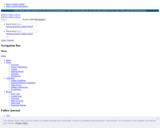
Beginning January 2014, Psychological Science gave authors the opportunity to signal open data and materials if they qualified for badges that accompanied published articles. Before badges, less than 3% of Psychological Science articles reported open data. After badges, 23% reported open data, with an accelerating trend; 39% reported open data in the first half of 2015, an increase of more than an order of magnitude from baseline. There was no change over time in the low rates of data sharing among comparison journals. Moreover, reporting openness does not guarantee openness. When badges were earned, reportedly available data were more likely to be actually available, correct, usable, and complete than when badges were not earned. Open materials also increased to a weaker degree, and there was more variability among comparison journals. Badges are simple, effective signals to promote open practices and improve preservation of data and materials by using independent repositories.
- Subject:
- Biology
- Life Science
- Psychology
- Social Science
- Material Type:
- Reading
- Provider:
- PLOS Biology
- Author:
- Agnieszka Slowik
- Brian A. Nosek
- Carina Sonnleitner
- Chelsey Hess-Holden
- Curtis Kennett
- Erica Baranski
- Lina-Sophia Falkenberg
- Ljiljana B. Lazarević
- Mallory C. Kidwell
- Sarah Piechowski
- Susann Fiedler
- Timothy M. Errington
- Tom E. Hardwicke
- Date Added:
- 08/07/2020

